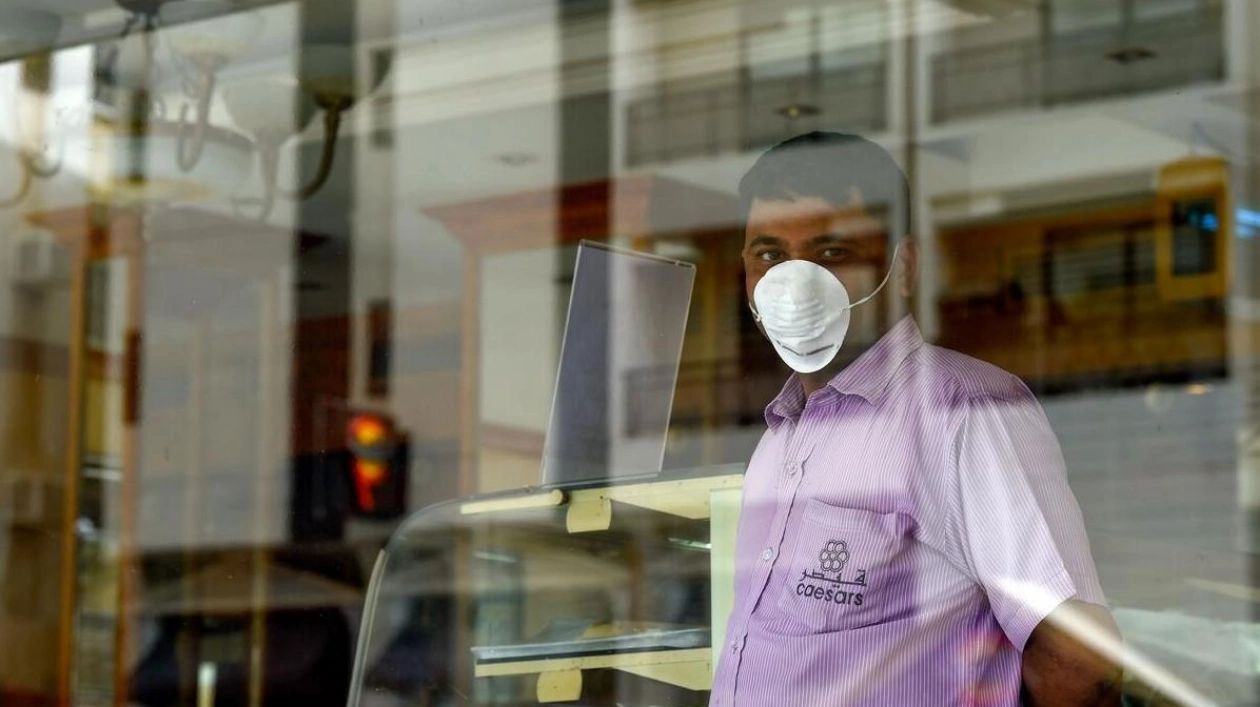A 50-year-old patient visited doctors at a private hospital in Abu Dhabi, reporting a persistent dry cough and low-grade fever that had persisted for over a week. Although he could continue his daily activities, the cough showed no signs of improvement. At Burjeel Hospital, a comprehensive assessment was conducted, and a chest X-ray confirmed the diagnosis of walking pneumonia. 'Following a course of antibiotics and rest, the patient's symptoms notably improved within a few days,' stated Dr. Samah Ahmed, a consultant pulmonologist at Burjeel Day Surgery Center, Al Shahama.
In a similar case, two brothers presented at Zulekha Hospital with complaints of fever, persistent cough, and body pain, unaware they were suffering from pneumonia. 'Both continued their daily routines, feeling unwell but oblivious to the fact that their lungs were battling an infection,' explained Dr. Hassan Razein, a specialist in respiratory medicine at Zulekha Hospital. A chest X-ray revealed small patches of lung infection, indicative of walking pneumonia. After initiating antibiotics, their fever subsided, though the cough persisted for over a week.
According to doctors, this form of pneumonia, often termed 'walking pneumonia,' is a milder type of lung infection that permits individuals to maintain their usual activities, despite symptoms that would typically render patients bedridden. Walking pneumonia is frequently caused by Mycoplasma pneumonia, a bacterium that results in less severe but more enduring symptoms. Unlike traditional pneumonia, which causes high fever, chest pain, and breathing difficulties, 'walking pneumonia's symptoms can be subtle. A dry cough, mild fever, fatigue, and sore throat are its common manifestations, and many people dismiss these signs as merely a bad cold or flu,' noted Dr. Ahmed.
Dr. Bhawna Gupta, a specialist pediatrician at Wecare Medical Center in Karama, commented: 'Walking pneumonia feels like a severe flu or a persistent cough that doesn’t respond to over-the-counter medications.' She added that most patients do not need hospitalization or bed rest and can continue their daily activities. While walking pneumonia can affect anyone, certain groups are more vulnerable. According to Dr. Gupta, children under two, adults over 65, asthma patients, and those with weakened immune systems, such as smokers or people on steroids, are at higher risk. Individuals living or working in crowded environments also have a greater likelihood of contracting the infection.
Dr. Ahmed pointed out that walking pneumonia is more prevalent during winter, 'when people spend more time indoors and the bacteria spread easily.' Symptoms of walking pneumonia can persist for several weeks, with the cough being the most enduring symptom. Dr. Ahmed emphasized that while the condition is mild, it’s crucial not to overlook it. 'Patients should be vigilant for signs that might indicate a deteriorating condition, such as severe chest pain, shortness of breath, or a high-grade fever,' advised Dr. Ahmed. Although walking pneumonia is generally mild, untreated cases can result in complications, according to Dr. Razein. 'Severe bacterial pneumonia or bronchitis may develop if the infection is left untreated, especially in individuals with weakened immune systems. In rare instances, untreated walking pneumonia can also lead to heart or nervous system issues,' added Dr. Razein.
Prevention and care are key, as 'walking pneumonia is preventable,' according to Dr. Ahmed. She recommended basic hygiene practices such as covering the mouth and nose when sneezing, frequent hand washing, and flu vaccination. 'People with chronic health conditions, such as asthma or diabetes, are encouraged to wear masks in crowded spaces,' said Dr. Razein. 'If you’re experiencing symptoms of walking pneumonia that don’t improve, it’s always best to consult a healthcare provider for an accurate diagnosis and appropriate treatment,' advised Dr. Gupta.
Source link: https://www.khaleejtimes.com






